Let me explain…
… why a bank from the Pacific Northwest can teach you how to make your business more memorable.
Like leaders and owners in any industry, those of you running garden centers are in a constant battle for the attention, loyalty and wallets of your customers. The first instinct in such hyper-competitive environments is to try to meet or beat the best offers of your direct competitorsto cut prices. But success today is about so much more than cost, price and traditional measures of qualitydelivering pure economic value. It is about passion, emotion, and identitysharing your values.
The most successful organizations don’t just make everything they do more affordable and reliable. They make themselves more memorable for customers to encounter. They understand that when it comes to long-term success, how you behave is as important as the products and services you sell, and that customers are prepared to reward you handsomely for behaviors that stand out from the crowd and stand for something special. Even small gestures can send big signals that customers value.
Consider a case study from an industry outside of garden centers, but that has much to teach about what matters to customers in any industry. Ray Davis, president and CEO of Umpqua Holdings, is one of my favorite CEOs. That’s not because he’s brash, colorful or combative he’s none of those. But over the last 16 years, he’s done something few leaders ever do. He’s figured out how to build a brand (in the form of a retail bank) that stands for something special in an industry that is profoundly broken.
Davis took charge of Umpqua back in 1994, when the bank was a pipsqueak of an outfit with six branches in and around the southern Oregon town of Roseburg, assets of $150 million, and, in his words, a “plain vanilla” competitive strategy. Since then, Umpqua has been one of the banking industry’s rising stars. It now has 183 branches stretching from San Francisco to Seattle, assets of $11 billion, and a unique strategy that positions Umpqua as a lifestyle brand rather than as just another local bank.
Umpqua’s 15-year track record of growth has little to do with the products it markets, which are virtually identical to the products offered by other banks. What’s distinctive about Umpqua has to do with how it offers those products its commitment to reimagining the experience of interacting with a bank.
Davis puts it this way: “If you took a person, blindfolded them, sent them to a bank, and took the blindfold off, 99 percent of them would say, ‘I’m in some bank somewhere.’ We want our customers to say, ‘I’m in an Umpqua bank.’ We don’t want the experience of banking here to feel like banking anywhere else.”
Banking. Sense.
That’s why Umpqua designs its branches to appeal to all five human senses. What should a bank look like? In Umpqua’s case, its branches evoke the spirit of a sleek hangout space, more like Starbucks or a well-appointed art gallery than the neighborhood savings-and-loan.
What should a bank sound like? In Umpqua’s case, it’s the sound of music. The bank signs indie bands to its Discover Local Music project and invites customers to listen to songs on in-branch kiosks or download them from the Web. It even sells compilation CDs of the best songs.
What should a bank smell like? Being the Pacific Northwest, the answer, of course, is coffee. Branch employees are happy to brew customers a cup of the bank’s own Umpqua Blend (which it also sells by the pound), and they end every transaction with a piece of gold-wrapped chocolate served on a silver platter. (That’s what Umpqua tastes like.)
Moreover, during and after hours, the beautifully appointed branches host community activities as well as banking activities. There are book clubs, movie nights, neighborhood meetings, “business therapy” gatherings, “stitch and bitch” sessions in which participants knit and gossip. Umpqua’s Innovation Lab, a branch filled with high-tech gadgets in Portland’s South Waterfront neighborhood, even hosts bowling leagues not with balls and pins, but with Wii video bowling on 144-inch high-definition screens.
Why does Umpqua bother? To change the conversation with customers and the community, to make itself interesting in a world where most banks are boring, to become a passion brand in an industry sorely devoid of passion.
“People come to the South Portland store in the middle of the day with their bowling shirts on,” Davis marvels. “Some customers are waiting to see their banker, and others are bowling! It’s incredible. It creates an environment where people say, ‘That was fun, let’s go back.'”
I’m not suggesting you copy any of Ray Davis’s specific techniques. But I am suggesting that you learn from his success. Sure, customers always appreciate a cheaper price. But they remember and reward a more robust and engaging experience. What are you doing to make your garden center (and yourself) more memorable to encounter?






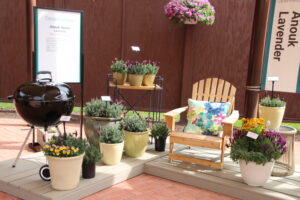





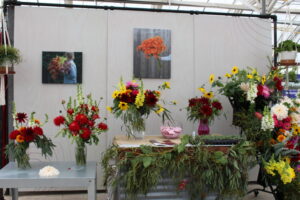
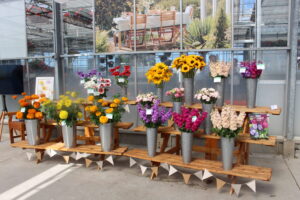
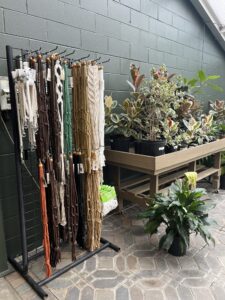
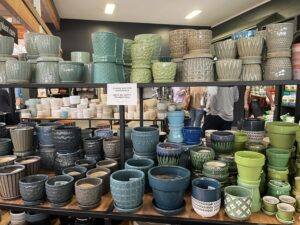


 Videos
Videos





